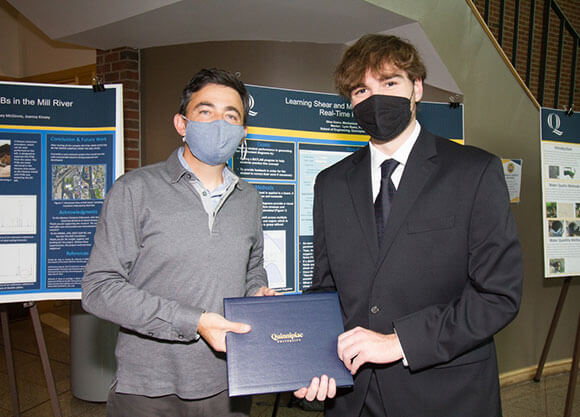
Professor of Biology
Director of Graduate Program in Molecular and Cell Biology
The de Lencastre lab is interested in the roles of microRNAs (miRNAs) and other non-coding RNAs in biology – with emphasis on roles in stress resistance during adulthood. His lab has identified miRNAs that dramatically affect animal lifespan and stress resistance. Currently, the lab is testing the molecular targets of these miRNAs and possible functions in models of neurodegenerative diseases such as Alzheimer’s, Parkinson’s and Huntington’s disease. Given the high conservation of miRNAs across species, insights from this research may inform on diseases of aging in humans.
For more information see the lab website:
http://mywebspace.quinnipiac.edu/adelencastre/index.html
Education
- PHD, Columbia University
Areas of Expertise
- Genetics
- Biochemistry
- Molecular Biology
- Aging
- Neurodegenerative diseases - Alzheimer’s, Parkinson’s and Huntington’s disease
Organization
- Biological Sciences
Office Location
- Buckman Center BC121A
Mail Drop
- BC-SCI
Experience
Quinnipiac University
Professor of Biology
Hamden, CT, USA
2022 - Present
Quinnipiac University
Associate Professor of Biology
Hamden, CT, USA
2018 - 2022
Quinnipiac University
Assistant Professor of Biology
Hamden, CT, USA
2013 - 2018
Yale University
Post-doctoral fellow
New Haven, CT, USA
2006 - 2013
Columbia University
Doctoral Student
New York, NY, USA
1998 - 2005
Selected Publications
Peer Reviewed Journal Article Review
Parkinson’s Disease and MicroRNAs - Lessons from Model Organisms and Human Studies
Evans B, Furlong H, and de Lencastre A
155 Experimental Gerontology 111585 November (2021)


